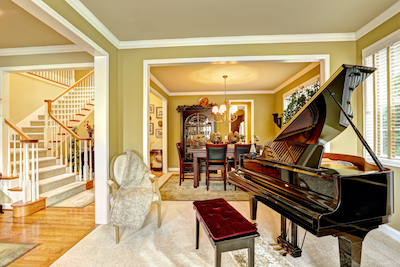What’s your dream as a piano player? Do you desire to play in some of the best concert halls in the world?
As a musician, you develop a special appreciation for your instrument. Violinists, trumpet players, flutists – they all search out the perfect instrument that will allow them to create beautiful music.
But piano players are different. In most cases, a piano player walks into a concert hall and performs on the instrument already on stage.
That first touch establishes connection. You play something. A chord. A bar from your favorite song. And you begin to feel with the piano. 
Most piano players will tell you they’ve played on good pianos – and not so good. They’ve plucked out tunes on all sizes and shapes, all manufacturers, all price points. And they will tell you that most of it doesn’t matter. Smaller can be better. There are hundreds of variables that go into the final decision. And even then, it’s often at the discretion of the piano player.
From the first notes, a player will understand the capabilities of the piano in front of them. The more they play, the more they will adjust their playing ability. But nothing will change a bad piano and make it better. It doesn’t have tonal quality. It doesn’t have a rich sound that can be pulled from a good one.
A piano that feels like it’s a continuation of their hands, from their thoughts to their hands to their fingers to the keys, that will help create beautiful music.
When playing a piano in a concert hall, a pianist will sit and warm up. They will play to build that connection with the instrument. They will request the help of a good, trained technician to adjust the tonal character here and there. Working with a skilled technician can take hours, even days to build the perfection between musician and piano.
For a pianist, the piano should sing, have a rich and varied tone, every note rounded out in perfect tune. What they don’t like, what sounds flat or unvaried, that’s why they request changed. That’s where the work is done.
But even after all that practice and work and fixing, something changes once again when the concert hall fills up, and the pianist sits down to play with the orchestra or band. It changes once again.
The hall’s acoustics change with the change in attendees. Suddenly it’s no longer empty seats, but living, breathing warm bodies that change the acoustics once again. Silence may still be silent, but it is interlaced with breathing, coughing, humming. The music fills the spaces in a unique way. You can feel it. You can hear it.
And when the concert ends, you stand up and walk away. Another concert, another town. And it begins again.

